New Yorkers felt as if they were on Mars as smoke from forest fires that wafted south from the Canadian province of Quebec hung around amid a stalled weather pattern. By evening the worst had passed, though the smell of something burning lingered. If only the effects on public policy were equally fleeting. Evaluating the causes of this complex event calls for humility, curiosity and thoughtfulness. But politicians are in charge. Senate Majority Leader Chuck Schumer jumped in front of a camera on Wednesday to proclaim that “we cannot ignore that climate change continues to make these disasters worse.” President Biden called the Canada burn “another stark reminder of the impacts of climate change.” Canadian Prime Minister Justin Trudeau joined the chorus. Their claims are bunk. …It may be counterintuitive, but greater use of Canadian woodlands by forestry companies could reduce the risk of catastrophe. [A subscription to the WSJ is required to read the full article].
 Nearly everyone living in the eastern U.S. has been served a powerful reminder of the complex effects of climate change this week. …Most people understand that trees and forests play an important role in reducing climate change — that’s one reason there are so many popular efforts aimed at planting trees. But not all forests are alike. …It turns out the age and composition of forests makes a big difference in what role they play in preventing wildfires and storing carbon. Old growth forest is the best at both, but there is very little old growth left in either the western or eastern US. But a large amount of the forests on public lands is what foresters call “mature” forest, which is nearly as good as old growth and in fact is on the brink of becoming old growth. It is these older forests that will help us prevent future forest fires and will do the most to reduce climate change.
Nearly everyone living in the eastern U.S. has been served a powerful reminder of the complex effects of climate change this week. …Most people understand that trees and forests play an important role in reducing climate change — that’s one reason there are so many popular efforts aimed at planting trees. But not all forests are alike. …It turns out the age and composition of forests makes a big difference in what role they play in preventing wildfires and storing carbon. Old growth forest is the best at both, but there is very little old growth left in either the western or eastern US. But a large amount of the forests on public lands is what foresters call “mature” forest, which is nearly as good as old growth and in fact is on the brink of becoming old growth. It is these older forests that will help us prevent future forest fires and will do the most to reduce climate change. Global additions to renewable energy capacity are on track to surge to a record this year as growing energy-security worries and improving costs drive investments in green power. The International Energy Agency said that the world will add more than 440 gigawatts of renewable electricity in 2023. …The forecast follows the IEA’s projection last week that well over half of energy investments this year will be directed at clean technologies, including renewables, electric vehicles, nuclear power, energy storage, low-emission fuels and efficiency improvements. …At the end of 2022, installed renewable electricity capacity worldwide was about 30 per cent of the total. The IEA has said that share could top 60 per cent by 2030 under a ‘net zero’ scenario. Additions to capacity in the forms of solar, wind, hydro and bioenergy will have to climb 12 per cent annually to hit that number. [to access the full story a Globe & Mail subscription is required]
Global additions to renewable energy capacity are on track to surge to a record this year as growing energy-security worries and improving costs drive investments in green power. The International Energy Agency said that the world will add more than 440 gigawatts of renewable electricity in 2023. …The forecast follows the IEA’s projection last week that well over half of energy investments this year will be directed at clean technologies, including renewables, electric vehicles, nuclear power, energy storage, low-emission fuels and efficiency improvements. …At the end of 2022, installed renewable electricity capacity worldwide was about 30 per cent of the total. The IEA has said that share could top 60 per cent by 2030 under a ‘net zero’ scenario. Additions to capacity in the forms of solar, wind, hydro and bioenergy will have to climb 12 per cent annually to hit that number. [to access the full story a Globe & Mail subscription is required]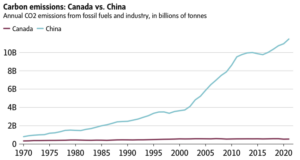 The statement from the most recent Group of Seven meeting in Japan… [includes] a long section on climate change, and the urgency of lowering global emissions. As there should be. …When it comes to greenhouse gases, the G7′s contribution is surprisingly small and shrinking. …Despite a growing population and a sharp rise in oil output in the early 2000s, Canada’s carbon emissions have fallen from 2.2 per cent of the planet’s output at the start of the century to just 1.5 per cent today. …China is now the biggest polluter, by far. Its emissions more than doubled between 2002 and 2010, as Canada’s flatlined. …India’s emissions, barely higher than Canada’s in 1990, now equal those of the EU. Indonesia, whose emissions were a third of Canada’s in 1990, is now a bigger polluter than us. The cause? Skyrocketing demand for electricity, with most of that new demand met with coal. [to access the full story a Globe & Mail subscription is required]
The statement from the most recent Group of Seven meeting in Japan… [includes] a long section on climate change, and the urgency of lowering global emissions. As there should be. …When it comes to greenhouse gases, the G7′s contribution is surprisingly small and shrinking. …Despite a growing population and a sharp rise in oil output in the early 2000s, Canada’s carbon emissions have fallen from 2.2 per cent of the planet’s output at the start of the century to just 1.5 per cent today. …China is now the biggest polluter, by far. Its emissions more than doubled between 2002 and 2010, as Canada’s flatlined. …India’s emissions, barely higher than Canada’s in 1990, now equal those of the EU. Indonesia, whose emissions were a third of Canada’s in 1990, is now a bigger polluter than us. The cause? Skyrocketing demand for electricity, with most of that new demand met with coal. [to access the full story a Globe & Mail subscription is required]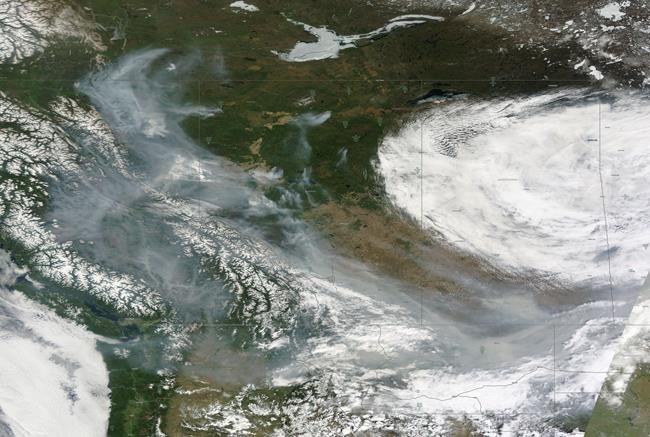


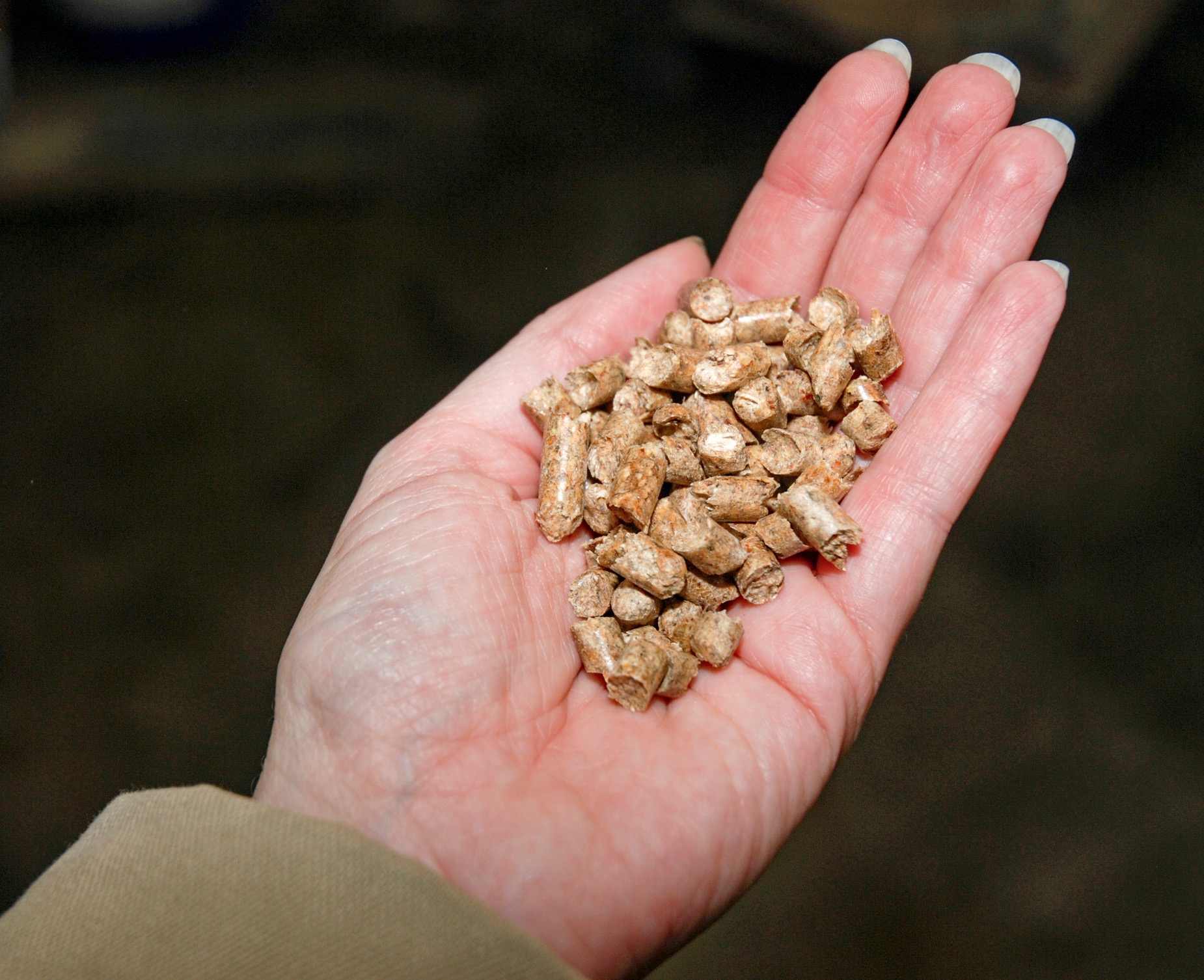 Today wood pellets made from sawmilling and harvesting residuals are in demand worldwide. Seen as low carbon, efficient and renewable clean energy, wood pellets support shifting away from fossil fuels and reducing greenhouse gas (GHG) emissions. …The wood pellet industry plays a vital role in the New Brunswick economy, supporting more than 625 direct and indirect jobs, procuring $60 million in local services and goods annually and investing over $100 million in capital expenditures. …if we took the 400,000 tonnes of local wood pellets manufactured yearly at the five wood pellet plants in New Brunswick and used the fuel here, we could take 100,000 homes off coal-fired electricity and displace 200 million litres of oil. …Because bioenergy also provides a market for sawmill residuals, it also allows forests to be better managed for increased productivity, vigour, and health. …With the right investment, policy, and standard changes, we can make biomass mainstream in New Brunswick.
Today wood pellets made from sawmilling and harvesting residuals are in demand worldwide. Seen as low carbon, efficient and renewable clean energy, wood pellets support shifting away from fossil fuels and reducing greenhouse gas (GHG) emissions. …The wood pellet industry plays a vital role in the New Brunswick economy, supporting more than 625 direct and indirect jobs, procuring $60 million in local services and goods annually and investing over $100 million in capital expenditures. …if we took the 400,000 tonnes of local wood pellets manufactured yearly at the five wood pellet plants in New Brunswick and used the fuel here, we could take 100,000 homes off coal-fired electricity and displace 200 million litres of oil. …Because bioenergy also provides a market for sawmill residuals, it also allows forests to be better managed for increased productivity, vigour, and health. …With the right investment, policy, and standard changes, we can make biomass mainstream in New Brunswick.
 The Ontario Forest Industries Association (OFIA) was in Atikokan last week, standing with the Hon. Graydon Smith, Minister of Natural Resources and Forestry, who announced the creation of a new $19.6 million Forest Biomass Program. The new program will support implementation of Ontario’s Forest Sector Strategy and Forest Biomass Action Plan. “Increased use of biomass will assist Ontario’s transition to a net-zero economy, reduce pressure on landfills, support the ongoing sustainable management of Ontario’s public forests, improve industry competitiveness, and strengthen the circular bioeconomy,” said OFIA’s President and CEO, Ian Dunn. Forest biomass electrical generating facilities are integral to Ontario’s forest sector and sustainable management framework. These facilities provide clean, green electricity and energy while benefiting forest operations, regional industrial clusters, and the environment.
The Ontario Forest Industries Association (OFIA) was in Atikokan last week, standing with the Hon. Graydon Smith, Minister of Natural Resources and Forestry, who announced the creation of a new $19.6 million Forest Biomass Program. The new program will support implementation of Ontario’s Forest Sector Strategy and Forest Biomass Action Plan. “Increased use of biomass will assist Ontario’s transition to a net-zero economy, reduce pressure on landfills, support the ongoing sustainable management of Ontario’s public forests, improve industry competitiveness, and strengthen the circular bioeconomy,” said OFIA’s President and CEO, Ian Dunn. Forest biomass electrical generating facilities are integral to Ontario’s forest sector and sustainable management framework. These facilities provide clean, green electricity and energy while benefiting forest operations, regional industrial clusters, and the environment. 
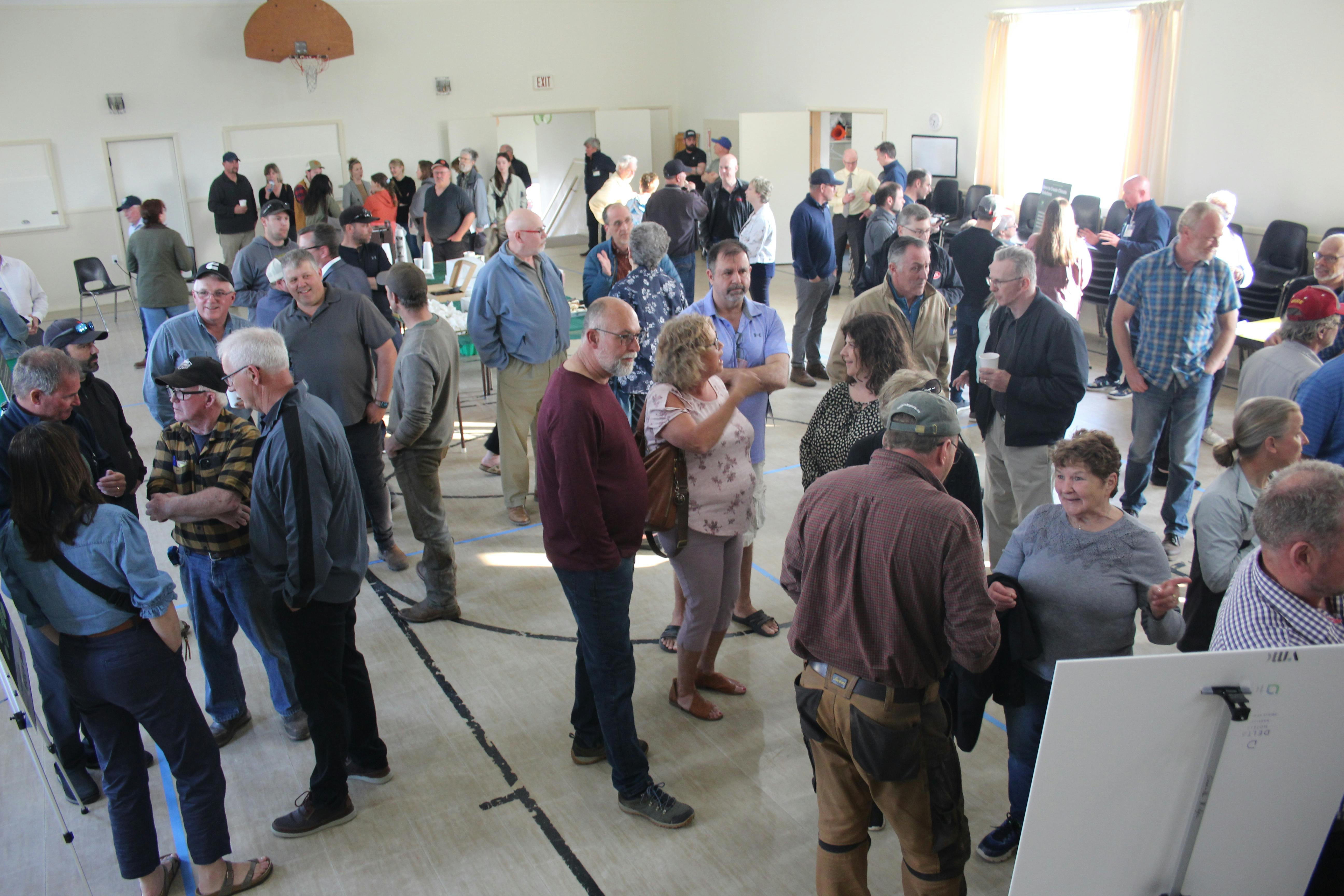

 A study published in Current Biology found that fungi gobble up more than a third of the world’s annual fossil fuel emissions. As such, fungi “represent a blind spot in carbon modeling, conservation, and restoration,” said coauthor Katie Field, University of Sheffield. Field’s team found that fungi pulled down 36 percent of global fossil fuel emissions — enough to cancel out the yearly carbon pollution from China, the world’s largest carbon emitter. …For nearly half a billion years, these “mycorrhizal fungi” — named for the combined Latin words for “fungus” and “root” — have provided plants with mineral nutrients like phosphorous in exchange for plant-manufactured sugars. …Globally, the world’s plants pump an estimated 13 gigaton of carbon dioxide into underground fungi each year, the study found. But despite their importance, these subsurface fungal networks are continually broken open by the many ways human society interacts with the subsurface world — through agriculture, mining and industry.
A study published in Current Biology found that fungi gobble up more than a third of the world’s annual fossil fuel emissions. As such, fungi “represent a blind spot in carbon modeling, conservation, and restoration,” said coauthor Katie Field, University of Sheffield. Field’s team found that fungi pulled down 36 percent of global fossil fuel emissions — enough to cancel out the yearly carbon pollution from China, the world’s largest carbon emitter. …For nearly half a billion years, these “mycorrhizal fungi” — named for the combined Latin words for “fungus” and “root” — have provided plants with mineral nutrients like phosphorous in exchange for plant-manufactured sugars. …Globally, the world’s plants pump an estimated 13 gigaton of carbon dioxide into underground fungi each year, the study found. But despite their importance, these subsurface fungal networks are continually broken open by the many ways human society interacts with the subsurface world — through agriculture, mining and industry.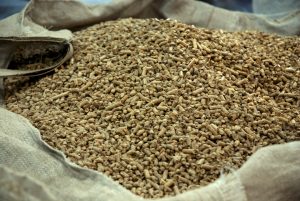 Enviva harvests trees to manufacture millions of tons of wood pellets annually in the U.S. Southeast to supply the biomass energy demands of nations in the EU, U.K., Japan and South Korea. But a host of operational, legal and public relations problems have led to greater-than-expected revenue losses and a drastic fall in stock price. These concerns raise questions as to whether Enviva can double its projected pellet production from 6 million metric tons annually today to 13 million metric tons by 2027 to meet its contract obligations. Enviva says its problems pose only short-term setbacks. While it isn’t possible to connect Enviva’s stock decline, or the company’s downgrading by a top credit ratings agency, with any specific cause, some analysts say that investors may be getting educated as to the financial risk they could face if the EU or other large-scale biomass users eliminate their subsidies to the industry.
Enviva harvests trees to manufacture millions of tons of wood pellets annually in the U.S. Southeast to supply the biomass energy demands of nations in the EU, U.K., Japan and South Korea. But a host of operational, legal and public relations problems have led to greater-than-expected revenue losses and a drastic fall in stock price. These concerns raise questions as to whether Enviva can double its projected pellet production from 6 million metric tons annually today to 13 million metric tons by 2027 to meet its contract obligations. Enviva says its problems pose only short-term setbacks. While it isn’t possible to connect Enviva’s stock decline, or the company’s downgrading by a top credit ratings agency, with any specific cause, some analysts say that investors may be getting educated as to the financial risk they could face if the EU or other large-scale biomass users eliminate their subsidies to the industry.




 A controversial proposal to allow biomass plants to burn scrap tires for electricity has been withdrawn by the Georgia Public Service Commission for now anyway. Clean energy advocates applauded the five-member board’s unanimous vote Thursday that reversed its decision in April that granted the biomass industry’s request to use junked tires as a more reliable fuel source that improves the bottom line. …Biomass representatives can petition the state regulators to hold a public hearing in the hopes of regaining commissioners’ support over objections that burning tires is a threat to public health and the environment. …Biomass power plants typically use wood pellets to produce energy, but natural gas and old tires are gaining traction within an biomass energy sector that represents a small fraction of Georgia’s energy consumption. While wood generated electricity is not economically feasible in the U.S., it is more attractive in Europe where there are incentives for using this type of energy.
A controversial proposal to allow biomass plants to burn scrap tires for electricity has been withdrawn by the Georgia Public Service Commission for now anyway. Clean energy advocates applauded the five-member board’s unanimous vote Thursday that reversed its decision in April that granted the biomass industry’s request to use junked tires as a more reliable fuel source that improves the bottom line. …Biomass representatives can petition the state regulators to hold a public hearing in the hopes of regaining commissioners’ support over objections that burning tires is a threat to public health and the environment. …Biomass power plants typically use wood pellets to produce energy, but natural gas and old tires are gaining traction within an biomass energy sector that represents a small fraction of Georgia’s energy consumption. While wood generated electricity is not economically feasible in the U.S., it is more attractive in Europe where there are incentives for using this type of energy.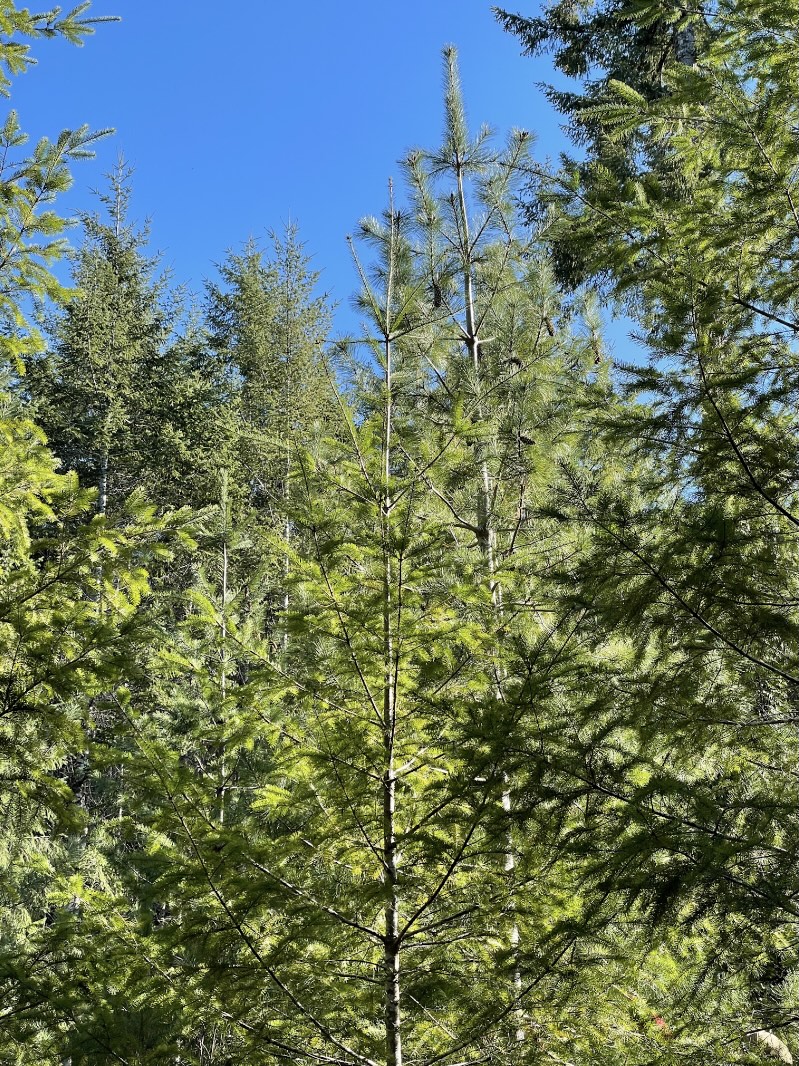 BOSTON — The Healey administration moved Wednesday to draft the state’s forests into the effort to address climate change, announcing a new initiative to invest in conservation, develop updated guidelines for state lands, and provide incentives for landowners to maximize the climate benefits of their forests. By optimizing the ability of forests to take carbon emissions out of the atmosphere, Gov. Maura Healey said the new Forests as Climate Solutions initiative “will play an essential role in the stewardship and conservation of our natural resources” and help the state make good on its carbon emission reduction targets. In addition to a minimum 50 percent reduction in emissions by 2030, the climate roadmap law requires Massachusetts to reduce emissions by at least 75 percent by 2040 and at least 85 percent by 2050.
BOSTON — The Healey administration moved Wednesday to draft the state’s forests into the effort to address climate change, announcing a new initiative to invest in conservation, develop updated guidelines for state lands, and provide incentives for landowners to maximize the climate benefits of their forests. By optimizing the ability of forests to take carbon emissions out of the atmosphere, Gov. Maura Healey said the new Forests as Climate Solutions initiative “will play an essential role in the stewardship and conservation of our natural resources” and help the state make good on its carbon emission reduction targets. In addition to a minimum 50 percent reduction in emissions by 2030, the climate roadmap law requires Massachusetts to reduce emissions by at least 75 percent by 2040 and at least 85 percent by 2050.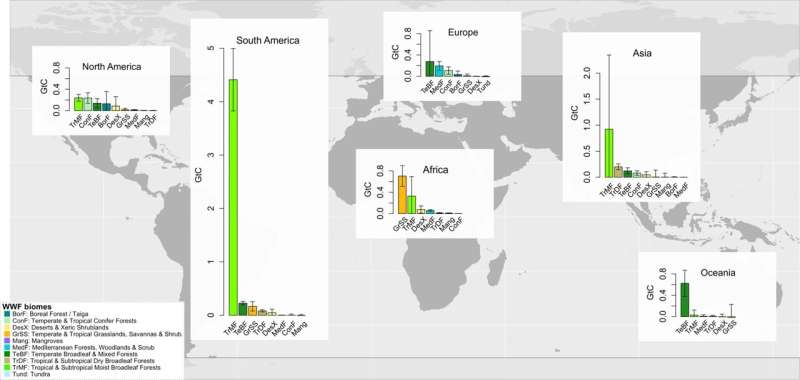

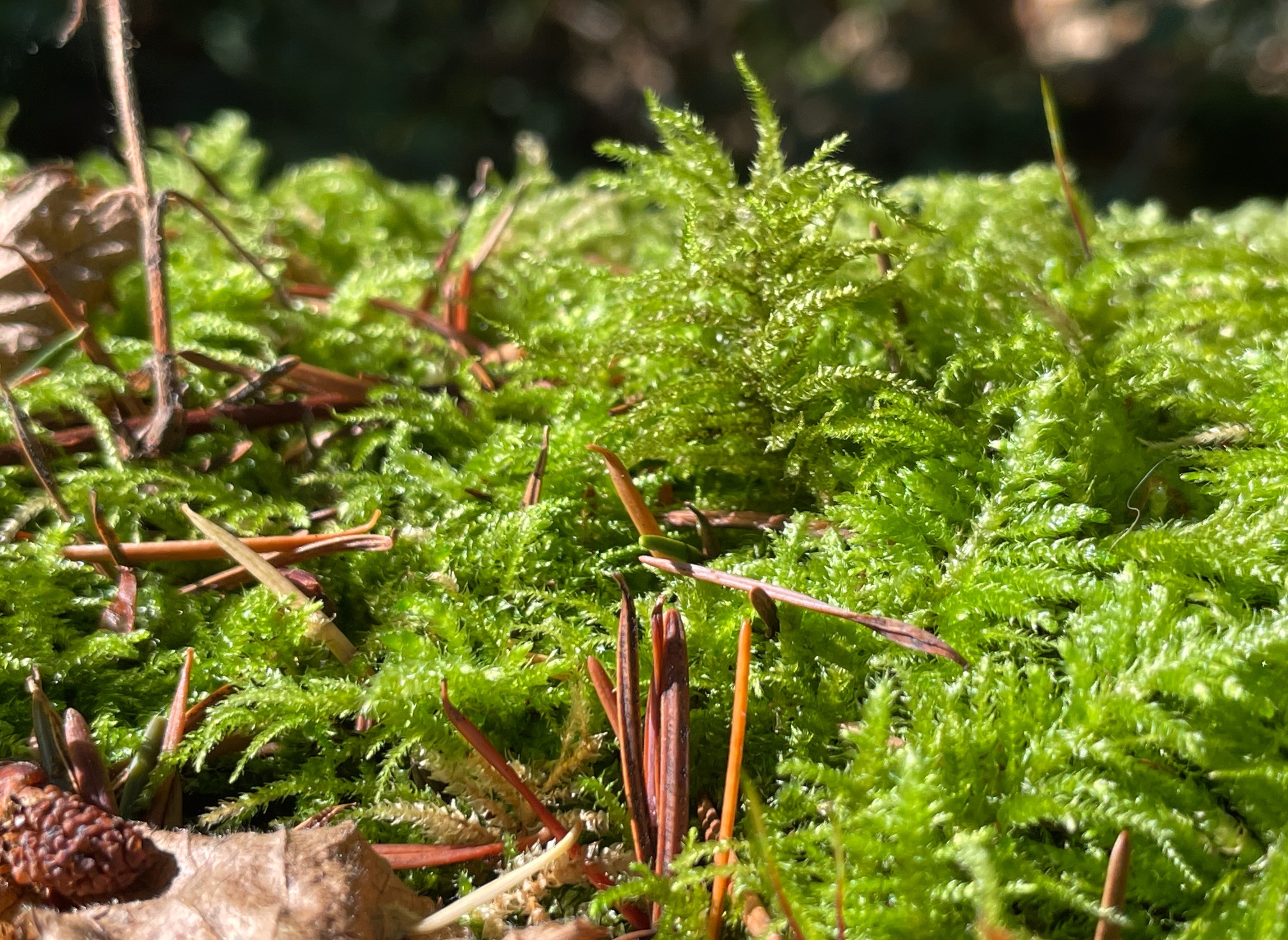 Mosses play a crucial role in fighting climate change, new research shows. Researchers learned that through photosynthesis, mosses sequester around 6.43 billion metric tons more carbon into the soil than what is stored in bare patches of soil without any plants. That calculates to six times the annual global carbon emissions caused by worldwide changes in land use, such as deforestation, urbanization, and mining. The study published in Nature Geoscience and was led by a dryland ecologist in Australia and an ecosystem ecologist in Spain. One of the scientists who co-authored the recent study was forest ecologist Peter Reich, director of the Institute for Global Change Biology at University of Michigan’s School for Environment and Sustainability. …The study found that moss-covered soil not only enhances carbon storage in soil, but also accelerates rates of organic decomposition and leads to fewer cases of soil-borne plant pathogens.
Mosses play a crucial role in fighting climate change, new research shows. Researchers learned that through photosynthesis, mosses sequester around 6.43 billion metric tons more carbon into the soil than what is stored in bare patches of soil without any plants. That calculates to six times the annual global carbon emissions caused by worldwide changes in land use, such as deforestation, urbanization, and mining. The study published in Nature Geoscience and was led by a dryland ecologist in Australia and an ecosystem ecologist in Spain. One of the scientists who co-authored the recent study was forest ecologist Peter Reich, director of the Institute for Global Change Biology at University of Michigan’s School for Environment and Sustainability. …The study found that moss-covered soil not only enhances carbon storage in soil, but also accelerates rates of organic decomposition and leads to fewer cases of soil-borne plant pathogens.


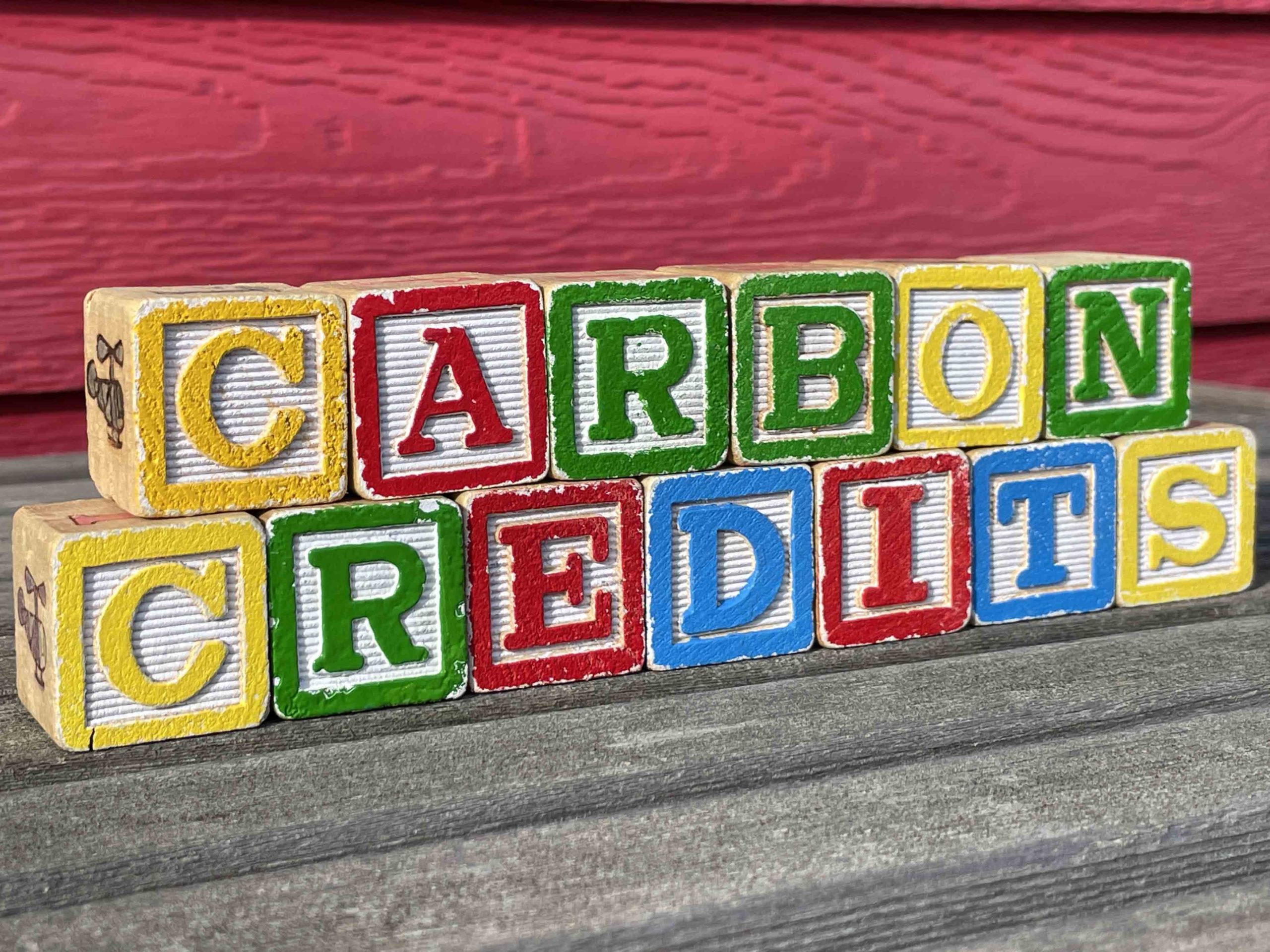 Brazil’s Congress passed a bill that will make carbon credits available to private companies with forest concessions, serving a first step in regulating the voluntary carbon market in the country. The new policy is expected to boost revenue by 43% while generating around $24 million per year from carbon credits. Though Brazil is home to the largest tropical forest in the world, the country is lagging behind others like Cambodia in generating forest carbon credits. The Amazon country has 20 certified REDD+ projects ongoing but only 2 of them in public forests. Forest concessions are leasing programs that lease areas of public forest to the private companies. This is to encourage economic activities such as logging that generate income while still keeping the forest standing. Under the current legislation, only credits from reforestation projects are permitted in forest concession agreements. Allowing the generation of carbon credits in forest concessions may change this scenario.
Brazil’s Congress passed a bill that will make carbon credits available to private companies with forest concessions, serving a first step in regulating the voluntary carbon market in the country. The new policy is expected to boost revenue by 43% while generating around $24 million per year from carbon credits. Though Brazil is home to the largest tropical forest in the world, the country is lagging behind others like Cambodia in generating forest carbon credits. The Amazon country has 20 certified REDD+ projects ongoing but only 2 of them in public forests. Forest concessions are leasing programs that lease areas of public forest to the private companies. This is to encourage economic activities such as logging that generate income while still keeping the forest standing. Under the current legislation, only credits from reforestation projects are permitted in forest concession agreements. Allowing the generation of carbon credits in forest concessions may change this scenario.

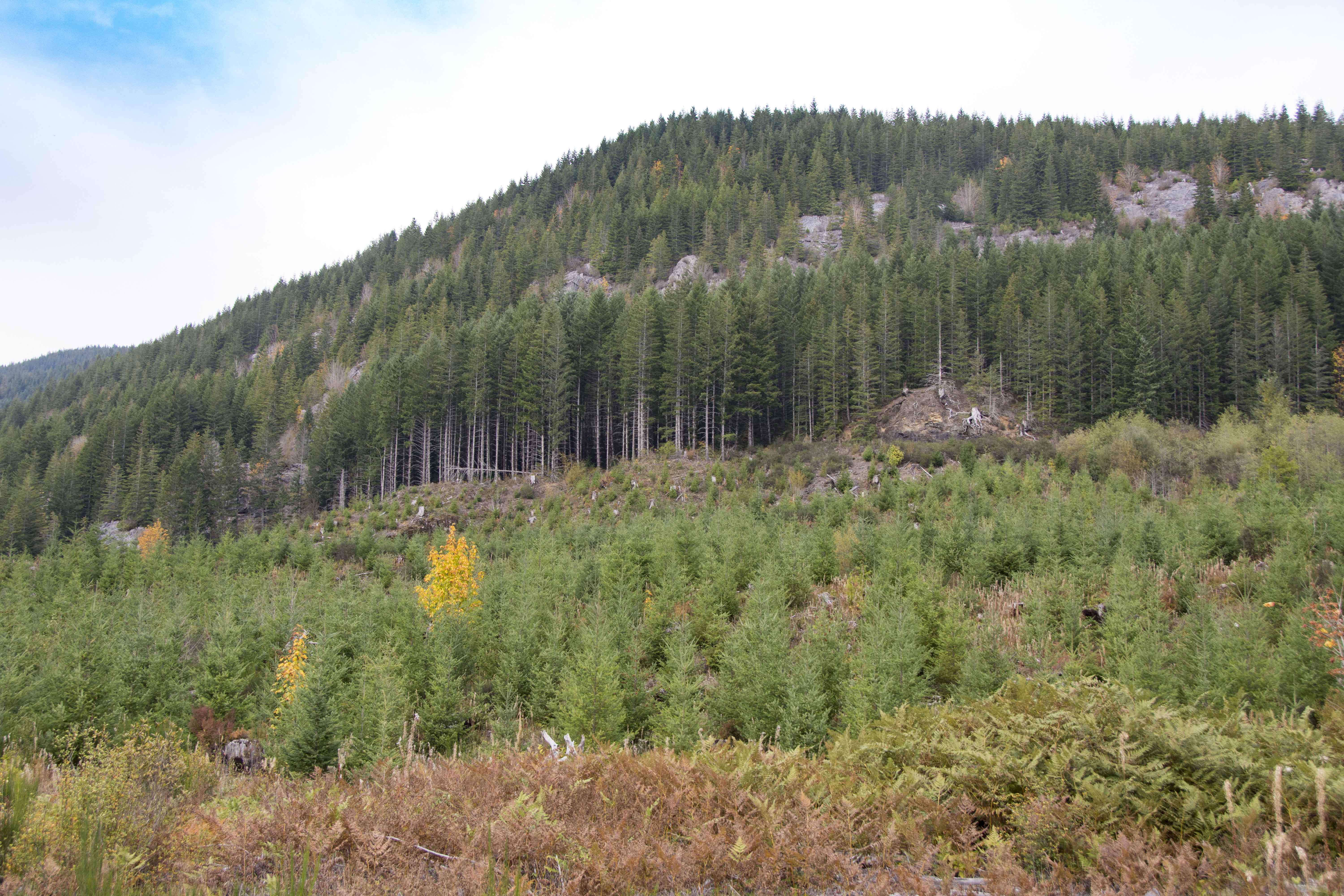 Harnessing the carbon-capturing potential of forests is a key component of plans to mitigate global climate change. Planting new forests is a common strategy, but this approach can have negative social and ecological impacts and substantial costs. Roebroek et al. instead investigated how ceasing management (e.g., wood harvesting or fire suppression) of forests would change their global carbon sequestration capacity. The authors assessed the differences between the biomass of similar forests with and without human activities and used machine learning to predict the additional biomass gain from removing human activities from global forests. Even if all management ceased (an extremely unlikely scenario), global forest carbon would only increase by about 15%. This work provides further evidence that changing forest management is not an alternative to cutting carbon emissions.
Harnessing the carbon-capturing potential of forests is a key component of plans to mitigate global climate change. Planting new forests is a common strategy, but this approach can have negative social and ecological impacts and substantial costs. Roebroek et al. instead investigated how ceasing management (e.g., wood harvesting or fire suppression) of forests would change their global carbon sequestration capacity. The authors assessed the differences between the biomass of similar forests with and without human activities and used machine learning to predict the additional biomass gain from removing human activities from global forests. Even if all management ceased (an extremely unlikely scenario), global forest carbon would only increase by about 15%. This work provides further evidence that changing forest management is not an alternative to cutting carbon emissions.